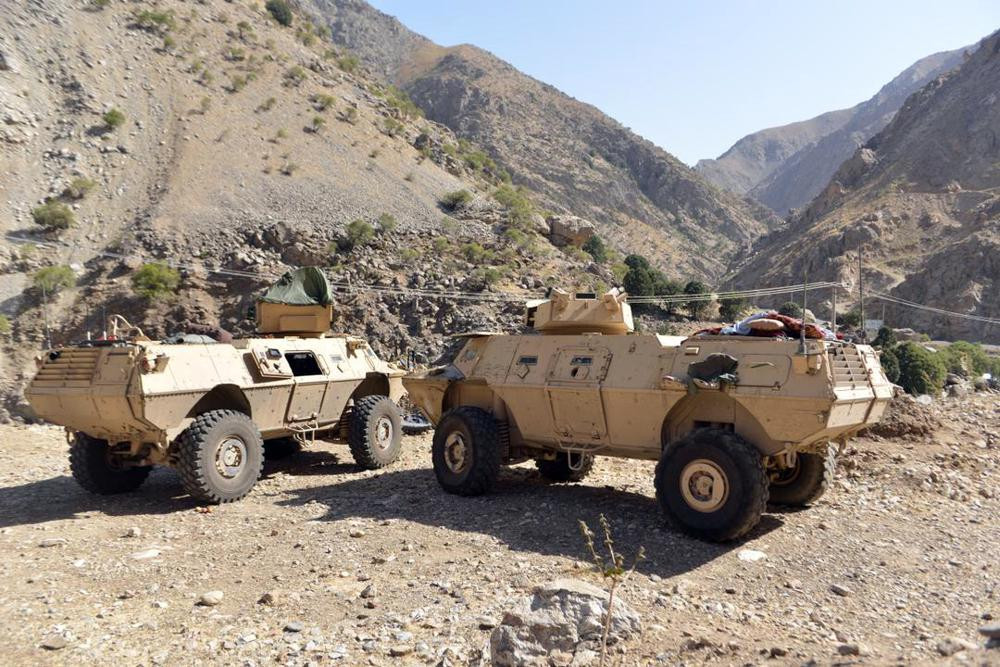The Taliban said on Monday they have taken control of Panjshir province north of Kabul, the last holdout of anti-Taliban forces in the country and the only province the Taliban had not seized during their blitz across Afghanistan last month.
Thousands of Taliban fighters overran eight districts of Panjshir overnight, according to witnesses from the area who spoke on condition of anonymity, fearing for their safety. Taliban spokesman Zabihullah Mujahid issued a statement, saying Panjshir was now under the control of Taliban fighters.
“We tried our best to solve the problem through negotiations, and they rejected talks and then we had to send our forces to fight,” Mujahid later told a press conference in Kabul.
The anti-Taliban forces had been led by the former vice president, Amrullah Saleh, and also the son of the iconic anti-Taliban fighter Ahmad Shah Massoud who was killed just days before the 9/11 terrorist attacks in the United States.
Meanwhile in northern Balkh province, at least four planes chartered to evacuate several hundred people seeking to escape the Taliban’s takeover of Afghanistan have been unable to leave the country for days, officials said Sunday, with conflicting accounts emerging about why the flights weren’t able to take off as pressure ramps up on the U.S. to help those left behind to flee.
An Afghan official at the airport in the city of Mazar-e-Sharif, the provincial capital, said that the would-be passengers were Afghans, many of whom did not have passports or visas, and thus were unable to leave the country. Speaking on condition of anonymity because he was not authorized to talk to reporters, he said they had left the airport while the situation was being sorted out.
The top Republican on the U.S. House Foreign Affairs Committee, however, said that the group included Americans and they were sitting on the planes, but the Taliban were not letting them take off, effectively “holding them hostage.” Rep. Michael McCaul of Texas told “Fox News Sunday” that American citizens and Afghan interpreters were being kept on six planes.
McCaul did not say where that information came from and it was not immediately possible to reconcile the two accounts.
The final days of America’s 20-year war in Afghanistan were marked by a harrowing airlift at Kabul’s airport to evacuate tens of thousands of people — Americans and their allies — who feared what the future would hold, given the Taliban’s history of repression, particularly of women. When the last American troops pulled out on Aug. 30, though, many were left behind.
The U.S. promised to continue working with the new Taliban rulers to get those who want to leave out, and the militants pledged to allow anyone with the proper legal documents to leave.
Experts had doubted that resistance to the Taliban in Panjshir, the last holdout province, could succeed long-term despite the area’s geographical advantage.
Nestled in the towering Hindu Kush mountains, the Panjshir Valley has a single narrow entrance. Local fighters held off the Soviets there in the 1980s and also the Taliban a decade later under the leadership of Massoud.
Massoud’s son Ahmad, in a statement Sunday called for an end to the fighting. The young British-schooled Massoud said his forces were ready to lay down their weapons but only if the Taliban agreed to end their assault. Late on Sunday dozens of vehicles loaded with Taliban fighters were seen swarming into Panjshir Valley.
There has been no statement from Saleh, Afghanistan’s former vice president who had declared himself the acting president after President Ashraf Ghani fled the country on Aug. 15 as the Taliban reached the gates of the capital. The Taliban subsequently entered the presidency building that day.
The Taliban’s lightning blitz across the country took less than a week to overrun some 300,000 Afghan government troops, most of whom surrendered or fled.
The whereabouts of Saleh and the young Massoud were not immediately known.
Mujahid, the Taliban spokesman, sought to assure residents of Panjshir that they would be safe — even as scores of families reportedly fled into the mountains ahead of the Taliban’s arrival.
“We give full confidence to the honorable people of Panjshir that they will not be subjected to any discrimination, that all are our brothers, and that we will serve a country and a common goal,” Mujahid’s statement said.
“There is no need for any more fighting,” Mujahid said at the press conference. “All Panjshir people and those who live in Panjshir are our brothers and they are part of our country.”
The Taliban had stepped up their assault on Panjshir on Sunday, tweeting that their forces had overrun Rokha district, one of the largest of eight districts in the province. Several Taliban delegations have attempted negotiations with the holdouts, but talks failed to gain traction.
Fahim Dashti, the spokesman for the anti-Taliban group, was killed in battle on Sunday, according to the group’s Twitter account. Dashti was the voice of the group and a prominent media personality during previous governments.
He was also the nephew of Abdullah Abdullah, a senior official of the former government who is involved in negotiations with the Taliban on the future of Afghanistan.
Mujahid denied Dashti died in battle with the Taliban, and claimed he was killed in an “internal dispute among two commanders in Panjshir,” without offering any evidence to support that claim.

